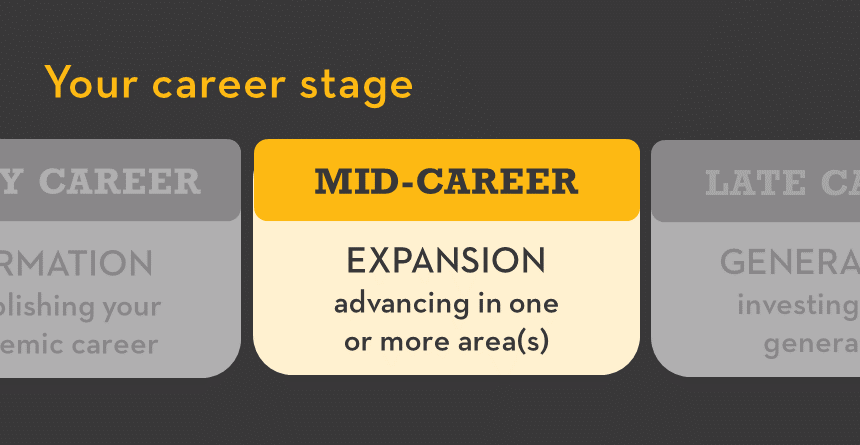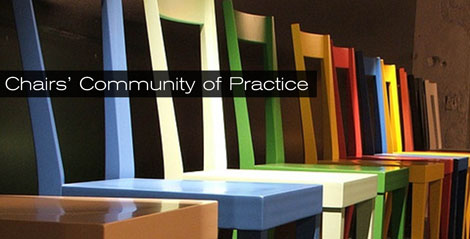
Mid-career Stage

Mid-career
The Center for Faculty Development offers a number of programs and events which may be specifically useful for mid-career faculty.

Chairs' Community of Practice
If, as a mid- or late-career faculty member, you become a program director or department chair (and have other faculty reporting to you), then another program that might be useful to you is the Chairs' Community of Practice (CoP).
This informal forum for chairs and directors from across the university is an opportunity to share ideas, expertise, practices and perhaps even challenges. Over a collegial glass of wine, you'll have a rare change to talk to your peer group with the aim of making chairing a more enjoyable experience.
To find out more about the Chairs' CoP meetings scheduled for this year, visit the Chairs' CoP website.
This page is undergoing migration, as part of a campus-wide web redesign project.
Please contact us directly at faculty-development@seattleu.edu with questions about events and/or resources appropriate for your career stage.